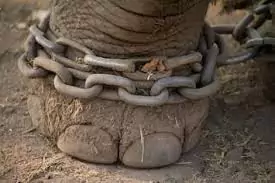 Before human beings became the dominant species across the globe, animals were the masters of Earth. Today, animals need to be protected and preserved from extinction, of which humankind can be the first reason. And while the majority of the human population realizes the importance of a humane attitude towards animals and the protection of their rights, cruelty to animals still exists.
Before human beings became the dominant species across the globe, animals were the masters of Earth. Today, animals need to be protected and preserved from extinction, of which humankind can be the first reason. And while the majority of the human population realizes the importance of a humane attitude towards animals and the protection of their rights, cruelty to animals still exists.

✅ AI Essay Writer ✅ AI Detector ✅ Plagchecker ✅ Paraphraser
✅ Summarizer ✅ Citation Generator
If you check the webpage of RSPCA Australia (Royal Society for the Prevention of Cruelty to Animals), you will find a list of actions and conditions that can be qualified as cruelty to animals. The list includes such points as torturing or beating an animal; failing to provide it with food and appropriate treatment in case of disease or injury; killing an animal in an inhumane manner; failing to provide appropriate transportation conditions, and so on (RSPCA). As it can be noticed, cruelty to animals is defined based on specific criteria that allow us to evaluate the way an animal is treated.
According to statistics, animals who suffer from cruelty most often are dogs (64.5%) and cats (18%). 25% are for other animals, such as horses (The Humane Society). Supposedly, it means domestic pets are the most vulnerable category to suffer from cruelty; also, it might mean cruelty towards animals is a result of pet owners demonstrating their anger, frustration, or stress on the closest and most defenseless creatures (this can be a proof in favor of the aforementioned conduct disorder).
Undoubtedly, there are people who mistreat animals because of their own misfortunes, twisted personalities, mental illnesses, ignorance, or indifference. According to The American Psychiatric Association, animal cruelty is “one of the diagnostic criteria of conduct disorder.” The fourth edition of the Diagnostic and Statistical Manual of Mental Disorders (DSM) defines conduct disorder as “a repetitive and persistent pattern of behavior in which the basic rights of others or major age appropriate societal norms or rules are violated (CFAWR).” In practice, it means animal abusers—those who treat animals cruelly—are likely to commit certain forms of crime and abuse towards people as well, which is a disturbing sign for sure.
Try our online assignment planner!
It will guide you step-by-step through the process of finishing your assignments without stress, while also managing your time.

Assignment breakdown
into parts and deadlines

Useful assignment tips with
references and guidelines

Custom reminders to finish
the assignment in time
At the same time, the mistreatment towards animals may be unintentional: for example, when an animal owner has suddenly lost his or her financial capabilities, and thus is unable to sustain and take care of himself and herself and the animal. In this case, this should not be seen as cruelty, and thus the owner should not be legally persecuted.
Cruelty to animals is a significant problem in terms of protecting animal rights, as well as security in general. This term implies poor nutrition, failing to provide animal with accommodations necessary for normal life, physical violence or torture, and so on. Cruelty to animals may be a symptom of conduct disorder, which in its turn, may possess danger to humans. Although not every case of animal mistreatment is a manifestation of cruelty (for instance, a person may become financially incapable of sustaining their pet any longer), this problem should still be paid attention to.
References
“Animal Cruelty Facts and Statistics.” The Humane Society of the United States. N.p., n.d. Web. 21 Dec. 2014. <http://www.humanesociety.org/issues/abuse_neglect/facts/animal_cruelty_facts_statistics.html>
“Animal Cruelty Syndrome.” CFAWR. N.p., n.d. Web. 22 Dec. 2014. <http://cfawr.org/animal-abuse.php>
“What is Animal Cruelty?” RSPCA Australia. N.p., n.d. Web. 24 Dec. 2014. <http://www.rspca.org.au/animal-cruelty/what-animal-cruelty>
Follow us on Reddit for more insights and updates.





Comments (0)
Welcome to A*Help comments!
We’re all about debate and discussion at A*Help.
We value the diverse opinions of users, so you may find points of view that you don’t agree with. And that’s cool. However, there are certain things we’re not OK with: attempts to manipulate our data in any way, for example, or the posting of discriminative, offensive, hateful, or disparaging material.
Comments are closed.